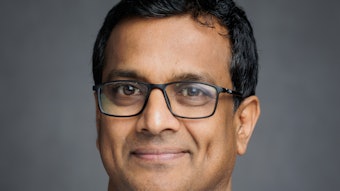
Carmen Cheung is currently a personal care formulation chemist for Lonza. She has been working in the cosmetic industry since she graduated in 2013 with a bachelor’s degree in cosmetic science. As a student, she did an internship at Fareva (France) working in the R&D of personal care products. Afterward, she went on to collaborate with ITECH Engineering School in Lyon, France, for her dissertation project: “Using Mixture Design Approach to Understand the Interaction of Natural Oils and Waxes in a Lipstick Base.” This paper was presented at 28th IFSCC Congress in Paris under the Color Cosmetics category.
In addition, she was awarded third prize for "Outstanding Graduate from a University of Applied Science" by SEPAWA for her credentials and final year project. Once graduated, she spent more than two and a half years working in R&D for British contract manufacturer Acheson & Acheson.
C&T: Who are/were your mentors?
CC: Robin Parker, Technical Director at Acheson & Acheson; and Prof. Danka Tamburic, London College of Fashion
'Abroad' Perspective and Lab to Scale-up
C&T: What interests do you have, or current work are you conducting, that relates to cosmetics?
CC: Traveling has always been a pastime of mine since I was really young. Having parents who are British immigrant, meant I was lucky to travel frequently back to Hong Kong and other countries with them. This, in turn, has led me to learn about cultural differences and the view of beauty in different countries. Whenever I travel abroad, especially in Asia, I always take time to peruse the pharmacies and local stores for the latest products and textures. Asia is a great place to take inspiration from.
C&T: What do you like most about your work? What do you like least?
CC: Prior to my current role at Lonza, I was working for a contract manufacturer in R&D, where I enjoyed seeing the products I had developed in the lab being scaled up for factory production. No matter how simple or complex the formulation was, there is always a great deal of satisfaction to see the final product, in its complete packaging, on a shop shelf. I’ve only just recently joined Lonza, as a personal care formulation chemist, so I have yet to find what I like least.
Time is Money
C&T: What do you find most challenging about your work?
CC: Although it’s a challenging aspect of the job, for me, I enjoy finding solutions to problems in a short period of time.
C&T: Give an example of an observation you think has application in the cosmetics industry.
CC: I don’t believe enough cosmetic companies are using experimental design software. This could potentially save companies a lot of time and money to find solutions to problems, whilst optimizing formulations.
Self-development and Training
C&T: What about the cosmetics and personal care products industries excites you? How would you like your role in the industry to evolve?
CC: I’m always keen to keep up-to-date with the latest technology and innovative raw materials—materials that allow unique textures and novel products to be formulated. Therefore, in order to be at the forefront, I would need to attend many conferences, seminars and trade shows; it is a job that requires constant training and self-development.
C&T: How is the industry helping to make this evolution happen? How could assistance improve?
CC: The industry needs to continue to showcase events to maintain awareness for anyone working in cosmetics.
Responsible Sourcing
C&T: How do you envision the cosmetics/personal care industry of the future?
CC: With the increasing number of personal care consumers, the industry needs to continue to find ways to source raw materials responsibly and reduce environmental impact. At the same time, social media will increasingly dictate industrial trends and demands.










